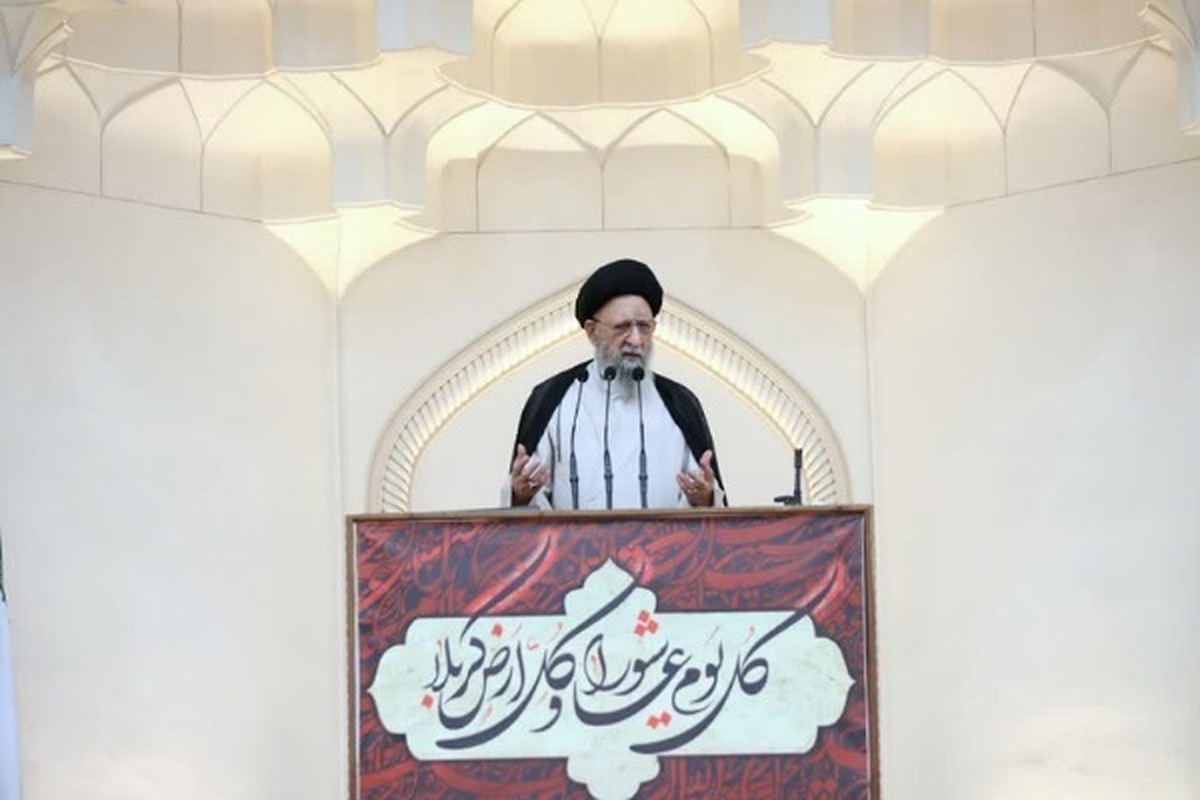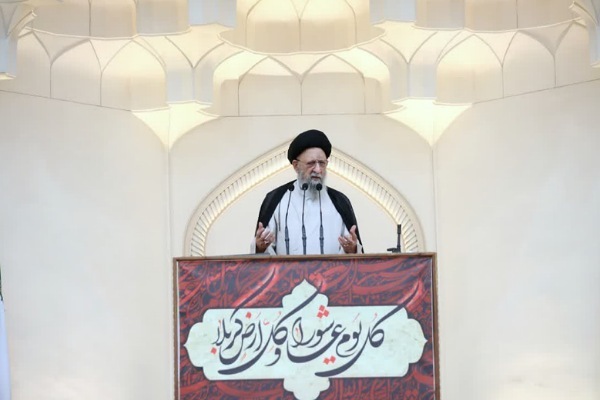Sahifeh Sajjadiyeh A Political-Cultural Statement in Form of Prayer: Cleric


Delivering his Friday prayer sermons today, Ayatollah Seyed Kazem Nourmofidi, the Friday prayer leader of Iran’s northern city of Gorgan, said that Sahifeh Sajjadiyeh is a political-cultural statement in the form of supplications.
Anyone who looks carefully at the prayers in Sahifeh Sajjadiyeh will realize that this book is not simply a collection of mystical invocations but it contains profound concepts in various fields, including social justice, criticism of the government, people's rights, and political issues of its time, he added.
Sahifeh Sajjadiyeh is a collection of supplications and prayers attributed to Imam Sajjad (AS), the fourth Imam of Shia Islam. It is considered a significant text in Islamic literature, particularly within Shia Islam
Elsewhere in his sermon, Ayatollah Nourmofidi referred to the strategic role of Imam Sajjad (AS) in reviving the culture of Ashura and preserving and explaining Islamic teachings after the Karbala incident.
By using the weapon of prayer and supplication, the fourth Imam (AS) transmitted pure Islamic teachings to future generations in a lasting form and saved religious culture from the danger of oblivion, the cleric stated.
Pointing to the historic sermon of Imam Sajjad (AS) in Yazid’s court, Ayatollah Nourmofidi said the enemies of Ah-ul-Bayt (AS) thought that the Ashura movement had ended with the capture of the family of Imam Hussein (AS), but Imam Sajjad (AS) spoke with courage and clarity in that sermon and exposed the true face of Yazid and the oppressive system, to the point that Yazid was forced to retreat.
Read More:
Emphasizing the importance of confronting the distortion of the history of Ashura, the Friday prayer leader of Gorgan said that just as Imam Sajjad (AS) did not allow the truth of the Karbala movement to be distorted, “we also have a duty to stand against the combined attack and targeted distortions of the enemies through cultural, media, and educational means, and to correctly convey the message of Ashura to the younger generation.”
4294973



